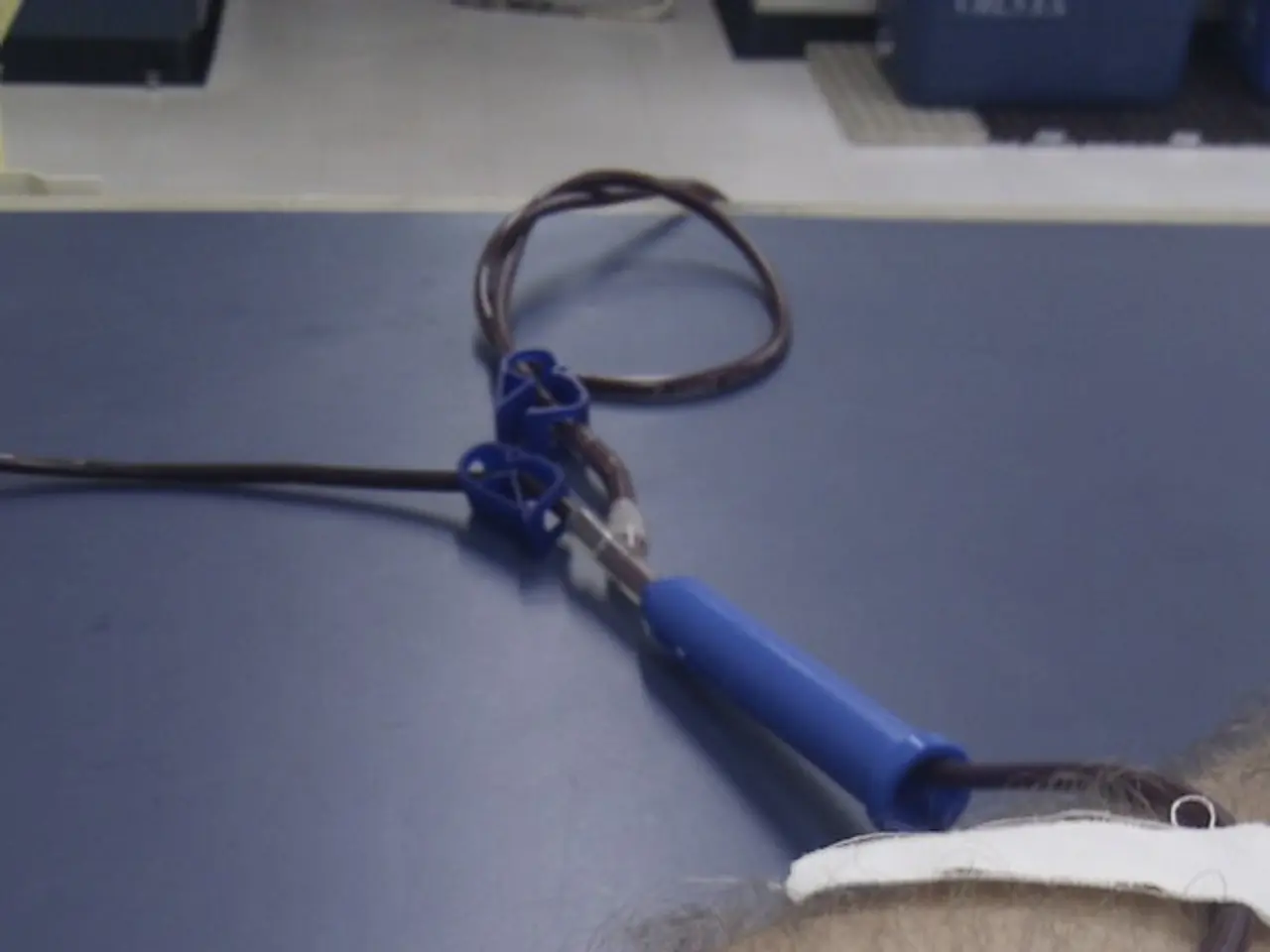Exploring Thyroid Ailments: Insight into Examining the Thyroid Globe
The thyroid gland, a small organ situated in the neck, plays a pivotal role in regulating metabolism, energy production, and various physiological processes. Thyroid disorders, though relatively rare, are prevalent and often misunderstood conditions that can affect individuals of all ages and backgrounds. A thorough examination of the thyroid gland is a critical step in diagnosing and managing these disorders.
A thyroid gland examination integrates biochemical and imaging assessments, providing a comprehensive picture crucial for effective diagnosis and management of thyroid diseases.
Laboratory Thyroid Function Tests (TFTs) are key components of a thyroid gland examination. These tests measure hormones such as TSH, T3, and T4, assessing whether the thyroid is underactive (hypothyroidism) or overactive (hyperthyroidism). This enables diagnosis and monitoring of disease progression and therapy effectiveness.
Thyroid antibodies tests, such as thyroid-stimulating immunoglobulins (TSI), are used particularly to diagnose autoimmune thyroid diseases like Graves' disease or Hashimoto’s thyroiditis.
Thyroid ultrasound is a non-invasive imaging method that evaluates the gland’s size, texture, and presence of abnormalities such as nodules, cysts, inflammation, or goiter. It is valuable in confirming thyroiditis (inflammation) and guiding further diagnostic or therapeutic steps.
A thyroid gland examination is essential in diagnosing and monitoring goiter, as it can help determine the gland's size and potential causes. If the physical examination or blood tests raise concerns, imaging studies such as ultrasound may be performed to assess the structure of the thyroid gland. In cases where thyroid nodules are identified, a fine needle aspiration (FNA) biopsy may be recommended to collect a tissue sample for examination.
Hyperthyroidism, arising from an overproduction of thyroid hormones, and hypothyroidism, where the thyroid gland produces insufficient amounts of thyroid hormones, are common thyroid disorders. Common symptoms of hyperthyroidism include rapid heartbeat, weight loss, anxiety, and heat intolerance, while hypothyroidism often results in fatigue, weight gain, dry skin, and depression.
Timely diagnosis and appropriate management of thyroid disorders can help mitigate their effects on an individual's quality of life. Thyroid gland examination, along with imaging studies and biopsies, plays a pivotal role in identifying and diagnosing thyroid cancer. If you suspect thyroid issues or experience symptoms related to thyroid dysfunction, it is essential to consult with a healthcare professional.
Early detection is crucial for successful treatment of thyroid cancer, and regular check-ups and proactive care can help ensure that thyroid disorders are identified and managed effectively. A physical examination during a thyroid gland examination assesses the size, shape, and texture of the thyroid gland, providing valuable insights into the health of this vital organ.
In conclusion, a thyroid gland examination is a crucial tool in the diagnostic process of thyroid disorders, helping to identify and manage them effectively. By integrating biochemical and imaging assessments, a comprehensive picture of thyroid health can be obtained, enabling timely intervention and appropriate management of these conditions.
- Developing a thorough understanding of sleep patterns and their relation to workplace-wellness can aid in managing medical conditions like chronic-kidney-disease, COPD, type-2-diabetes, and cancer.
- Chronic respiratory conditions, such as COPD, often coexist with digestive-health issues, necessitating a holistic approach to treatment and management.
- Eye-health is crucial when considering health-and-wellness, as certain medical conditions like diabetes can lead to vision loss unless treated proactively.
- Ongoing research has highlighted the connection between hearing loss and cardiovascular issues, emphasizing the importance of regular check-ups for seniors, particularly those with multiple-sclerosis and rheumatoid-arthritis.
- Skin-care is vital for maintaining overall health; psoriasis, a chronic skin condition, can be exacerbated by stress and improper nutrition.
- Seeking guidance from a healthcare professional is essential for addressing Alzheimer's disease, neurological-disorders, migraines, and autoimmune-disorders, which require therapies-and-treatments and continuous monitoring.
- Adopting a fitness-and-exercise regimen can significantly improve mental-health, helping to alleviate symptoms related to conditions like depression and anxiety.
- Mens-health encompasses various aspects, including reproductive health, prostate disorders, and hormonal balance, which can be addressed through proper nutrition and medical interventions.
- Sexual-health is an integral part of wellness; practicable advice for parents when addressing topics like puberty and STDs can facilitate open communication and ensure effective weight-management in teenagers.
- Managing stress and maintaining a balanced diet can help decrease the severity of multiple-sclerosis and breast-cancer symptoms, as well as speed up recovery.
- Maintaining skin-conditions in newborns is essential, as eczema or allergies can be indicative of an underlying medical condition that requires attention.
- Medication adherence, appropriate nutrition, and regular check-ups are crucial in the management of chronic diseases like type-2-diabetes, COPD, and cancer.
- As one ages, maintaining eye-health becomes increasingly significant, with cataracts, glaucoma, and macular degeneration being among the most common age-related eye conditions.
- Womens-health requires special attention, encompassing issues like menopause, breast health, fertility, and pregnancy-related conditions, all of which necessitate regular screenings and medical guidance.
- Regular check-ups for children and adolescents can help identify and manage medical conditions like asthma, ADHD, and diabetes, ensuring they can lead healthy and productive lives.
- Practicing mindfulness, stress management, and seeking help when needed can aid in coping with neurological-disorders like migraine and Alzheimer's disease.
- CBD oil has shown promise in managing symptoms associated with chronic-diseases like multiple-sclerosis, inflammatory bowel disease, and fibromyalgia; nevertheless, more research is needed to determine its long-term effects and appropriate dosage.
- Medicare benefits can provide invaluable support for seniors, providing access to necessary treatments, therapies, and medications for various conditions, such as cardiovascular-health, skin-care, and mental-health issues.




